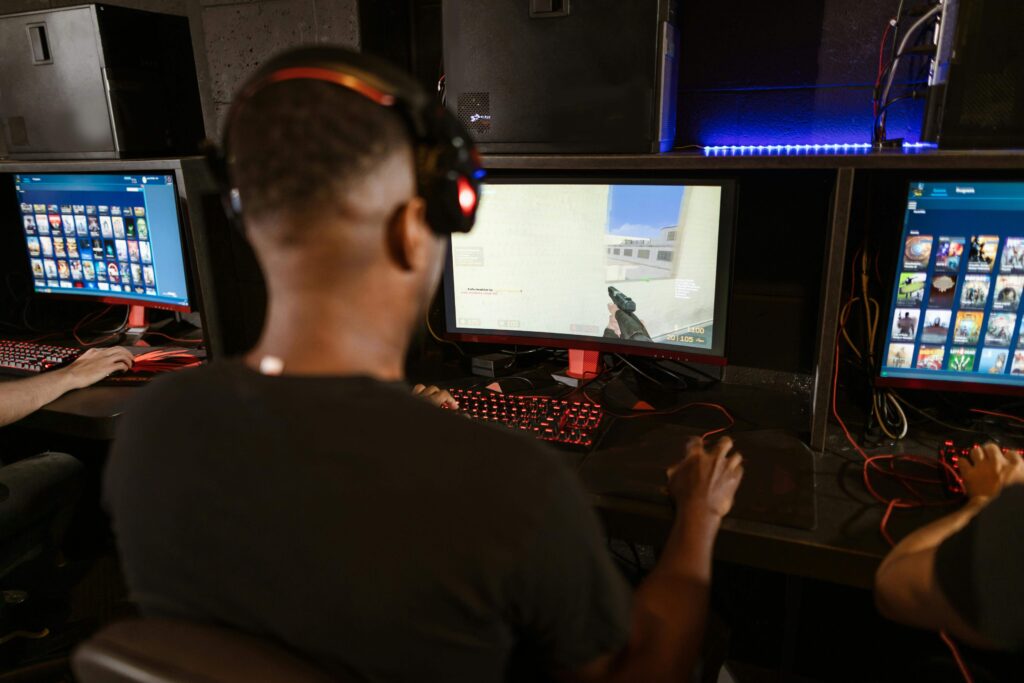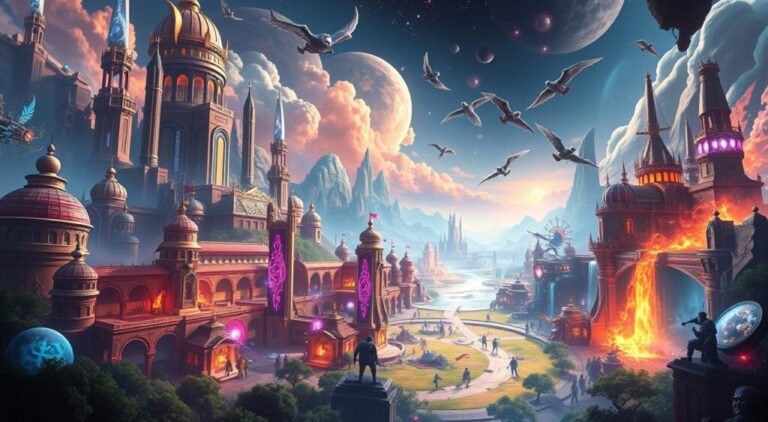
The world of online gaming is vast and exciting, offering something for everyone. Whether you’re a complete novice or just curious about dipping your toes into the digital realm, this beginner’s guide will equip you with the knowledge you need to get started. From understanding different game genres to setting up your gaming environment, we’ll cover it all.
What is Online Gaming?
Online gaming refers to playing video games over the internet. It connects players from all over the world, allowing them to interact, compete, and cooperate in virtual environments. This can range from simple browser-based games to complex, immersive worlds with thousands of simultaneous players.
Why is Online Gaming so Popular?
The popularity of online gaming stems from several factors:
- Social Interaction: Online games offer a platform to connect with friends and make new ones, fostering a sense of community.
- Accessibility: With the rise of affordable internet and mobile devices, online games are more accessible than ever.
- Variety: The sheer variety of online games caters to diverse tastes, from casual puzzle games to hardcore simulations.
- Competition: Many online games feature competitive elements, offering players a chance to test their skills and climb the ranks.
- Immersion: Advanced graphics and sound design create immersive experiences, drawing players into captivating virtual worlds.
Different Genres of Online Games:
The world of online gaming is diverse, offering a wide range of genres:
- Massively Multiplayer Online Role-Playing Games (MMORPGs): These games feature persistent worlds where players create characters, explore vast landscapes, complete quests, and interact with thousands of other players. Examples include World of Warcraft and Final Fantasy XIV.
- Multiplayer Online Battle Arenas (MOBAs): MOBAs focus on team-based combat, where players control heroes with unique abilities and work together to destroy the enemy’s base. Popular titles include League of Legends and Dota 2.
- First-Person Shooters (FPS): FPS games emphasize fast-paced action and combat from a first-person perspective. Call of Duty and Counter-Strike are prominent examples.
- Real-Time Strategy (RTS): RTS games require players to manage resources, build armies, and strategize to defeat opponents in real-time. StarCraft II is a classic example.
- Casual Games: These games are typically simple to learn and play, often enjoyed for short bursts of entertainment. Think online puzzle games or browser-based titles.
- Simulation Games: Simulation games mimic real-world activities, from flying airplanes to driving trucks. They offer a realistic and immersive experience.
- Battle Royale: In this genre, players are dropped into a shrinking map and must fight to be the last onestanding. Fortnite and PlayerUnknown’s Battlegrounds (PUBG) are hugely popular.

Getting Started with Online Gaming:
- Choose a Game: Explore different genres and find a game that interests you. Consider your preferred platform (PC, console, mobile) and the type of gameplay you enjoy.
- Create an Account: Most online games require you to create an account. This usually involves providing an email address and creating a username and password.
- Download and Install: Once you have an account, you’ll need to download and install the game client on your chosen platform.
- Learn the Basics: Many games offer tutorials or introductory missions to help you learn the controls and game mechanics.
- Practice and Improve: Like any skill, online gaming takes practice. Don’t be discouraged if you’re not immediately successful. Focus on learning and improving your gameplay.
- Join a Community: Connecting with other players can enhance your gaming experience. Join online forums, communities, or guilds to share tips, find teammates, and socialize.
Essential Equipment for Online Gaming:
- Computer or Console: This is the core of your gaming setup. Ensure it meets the game’s recommended specifications for optimal performance.
- Internet Connection: A stable and fast internet connection is crucial for smooth online gameplay. Consider a wired connection (Ethernet) for the best performance.
- Headset: A headset with a microphone allows you to communicate with other players, which is essential for team-based games.
- Gaming Mouse and Keyboard (PC): A good gaming mouse and keyboard can provide more precision and control.
- Controller (Console): Consoles typically come with their own controllers, but you can often purchase specialized controllers for specific games.
Tips for a Positive Online Gaming Experience:
- Be Respectful: Treat other players with respect, even if you’re competing against them. Avoid toxic behavior and harassment.
- Communicate Effectively: Communication is key in team-based games. Use your microphone or text chat to coordinate with your teammates.
- Take Breaks: Gaming can be immersive and addictive. Remember to take regular breaks to avoid eye strain, fatigue, and other health issues.
- Manage Your Time: Set limits for your gaming time to ensure it doesn’t interfere with other important aspects of your life.
- Stay Safe Online: Be cautious about sharing personal information online and avoid clicking on suspicious links.
The Future of Online Gaming:
The future of online gaming looks bright, with advancements in technology constantly pushing the boundaries of what’s possible. Cloud gaming, virtual reality (VR), and augmented reality (AR) are poised to revolutionize the gaming landscape, offering even more immersive and interactive experiences.
Conclusion:
Online gaming offers a world of entertainment, social connection, and personal growth. By understanding the basics and following the tips in this guide, you can embark on your own exciting journey into the digital realm. So, choose your game, connect with friends, and get ready to experience the thrill of online gaming!







1 thought on “Online Gaming: A Beginner’s Guide”